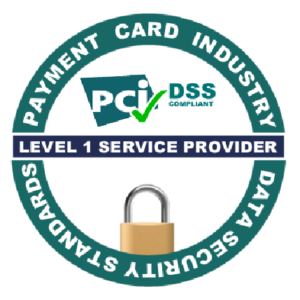Best Order Management Security Features For Customer Data Protection
Order Management System Security Features
Protect Your Customer Card Holder Data and Your Merchant Accounts.
PCI Level 1 Service Provider
The business models and applications that support online and mobile payment transactions require a high level of order management security features in order to earn consumer trust. OrderLogix technology complies with PCI Level I Service Provider standards for transaction and cardholder data security. Merchants must demonstrate an equally strong commitment to security when approaching new customer opportunities.

Protecting Cardholder Data is Good for Your Business
OrderLogix’s PCI compliance means that your company is more secure and your process of validating and maintaining PCI compliance is also simplified. With a strong chain of PCI compliance in place, the consumer’s payment information is significantly more secure than if there were a missing link in that chain.
Protect Your Customer Card Holder Data and Your Merchant Accounts.
Best Reliable Order Management System Security Features
Private Cloud Environment
Our Private cloud is a type of cloud computing that delivers similar advantages to public cloud, including scalability and self-service, but through a proprietary architecture with resources dedicated to OrderLogix customers. PCI and HIPAA compliance can only be delivered through a private cloud deployment because the hardware, storage and network configuration is dedicated.
Software as a Service (SaaS)
The software market has shifted from an ownership to a rental model, freeing businesses from the hassle and expense of software purchasing, deployment, maintenance, and tough new PCI security standards. To use OrderLogix, you need only a computer connected to the internet with a current web browser. OrderLogix takes care of Security, IT, Software, and Server maintenance.
Roles and Permissions
Roles are created for various job functions and the permissions to perform certain operations are assigned to specific roles. Members or staff are assigned particular roles, and through those role assignments acquire the computer permissions to perform particular system functions. Since users are not assigned permissions directly, but only acquire them through their role (or roles), management of individual user rights becomes a matter of simply assigning appropriate roles to the user’s account; this simplifies common operations, such as adding a user, or changing a user’s department
Additional Data Security
Modifications to existing orders are logged with user identification, date and time stamp, and reason codes with comments, all of which can appear in your reports for later analysis. Additionally, sensitive data, including credit cards and passwords, are masked and encrypted to protect them from unauthorized users and hacking attempts.
